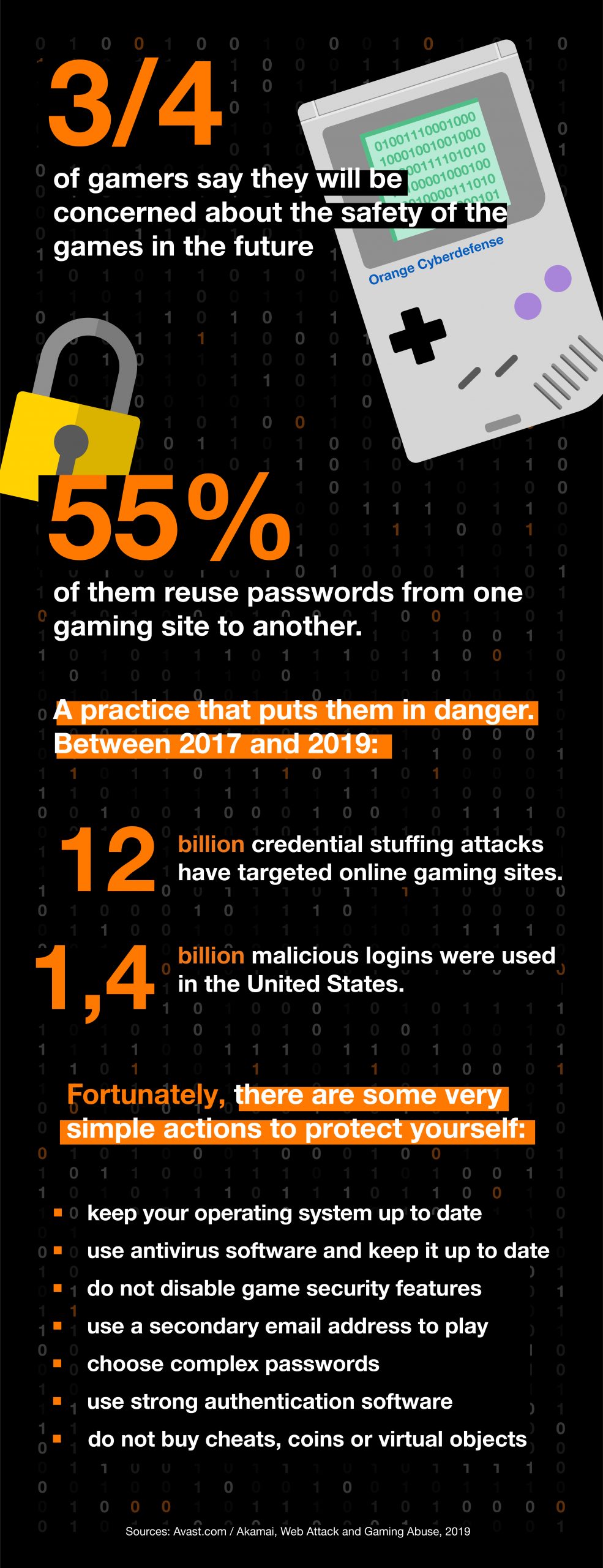
14 August 2020


Video games such as MMO (massively multiplayer online) and RPG (role playing games) online are played from a PC. This implies that, in practice, the gamers are exposed to the same risks as any other Internet user: data theft, identity theft, theft of goods and money…
Thus, they have become prime targets for cybercriminals. Akamai, in its Web Attack and Gaming Abuse report, released in 2019, estimates that globally, of the 55 billion credential stuffing attacks that occurred between November 2017 and March 2019 on the Internet, 12 billion targeted online gaming sites.
The United States and Russia are at the top of the list of countries most targeted by cyber-attackers. During the same period, the United States suffered more than 1.4 billion malicious logins. This number almost double for Russia, with 2.7 billion logins stolen.
Some gamers do have habits that make them particularly prone to be attacked:
For cybercriminals, these habits are all gateways for perpetrating their attacks.
The theft of password/login pairs remains a great classic on the net, and not only for gamers. This information is often resold for a pittance on the web.
However, sometimes, a player can benefit from someone else’s theft, consciously or unconsciously. “Hackers break into gamers’ systems and steal virtual goods. Then they sell those goods to other gamers within the game for real world money,” writes Avast on its blog.
Also according to Avast, three quarters of the gamers say they worry about the security of the games in the future. However, there are some very simple practices to protect yourself from cybercriminals. Note that some of the following tips apply equally well to Internet users who do not play online. They are as follows: